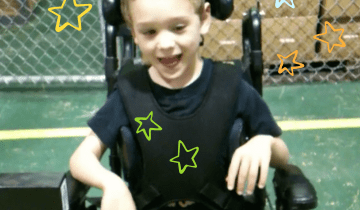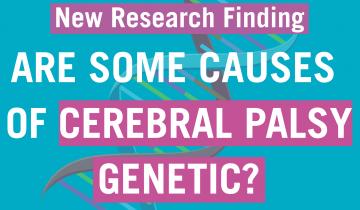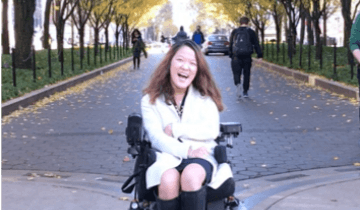This recent study found that over half of children and young people with Cerebral Palsy have more than one movement disorder, which is more common than previously thought.
In 10% to 15% of cases, there is no clear cause of CP. There is increasing recognition that genetics plays a part, but no standardized approach to genetic testing in patients with CP exists. In this study we asked the question whether both people with and without known risk factors for CP should have genetic testing.
Author summary on stakeholder perspectives of pediatric powered wheelchair standing devices.
Complex Rehabilitation Technology serves to enhance the lives of individuals who utilize it with the goals of maximizing health, wellbeing, participation and independence.

This study highlights caregiver knowledge and preferences to understanding the GMFCS and how that information should be relayed from clinicians.
The GMFCS, MACS and CFCS are all tools used by therapists and researchers to help classify the functional capabilities of individuals with CP. This research article provides evidence of their stability over time.
The GMFCS can be a helpful tool in clinical and research use and has been shown to be stable and accurate over time. It can also help individuals and families better understand cerebral palsy.
Adults with Cerebral Palsy have unique care needs related to physiological changes that occurred with growth and development with Cerebral Palsy, including mental health, yet experience many barriers to proper care.
Early powered mobility has been shown to improve cognition in children with multiple, complex disabilities.
The purpose of this study is to explore the breast cancer screening experiences of women with CP with the aim of identifying factors that could improve screening rates for women with disabilities.
Adults with Cerebral Palsy have unique care needs related to physiological changes that occurred with growth and development with Cerebral Palsy, including mental health, yet experience many barriers to proper care.
Though the initial insult or injury to the brain that causes cerebral palsy is non-progressive, aging with cerebral palsy and lack of physical activity during critical periods of development can impact biologic and metabolic function for adults with cerebral palsy.
Cohort-based whole exome and whole genome sequencing and copy number variant (CNV) studies have identified genetic etiologies for a sizable proportion of patients with cerebral palsy (CP). These findings indicate that genetic mutations collectively comprise an important cause of CP.
An international study recently published in the journal Nature Genetics has provided the first firm evidence that for a substantial number of people, their cerebral palsy (CP) may be caused by a genetic mutation, or mis-spelling in the body’s DNA blueprint.

"In addition to commonly associated environmental factors, genomic factors may cause cerebral palsy. We performed whole-exome sequencing of 250 parent–offspring trios, and observed enrichment of damaging de novo mutations in cerebral palsy cases."
Although the brain injury that causes cerebral palsy is nonprogressive, adults with CP can experience a variety of symptoms as they age which often depend on the type of CP they have, as well as the level.

